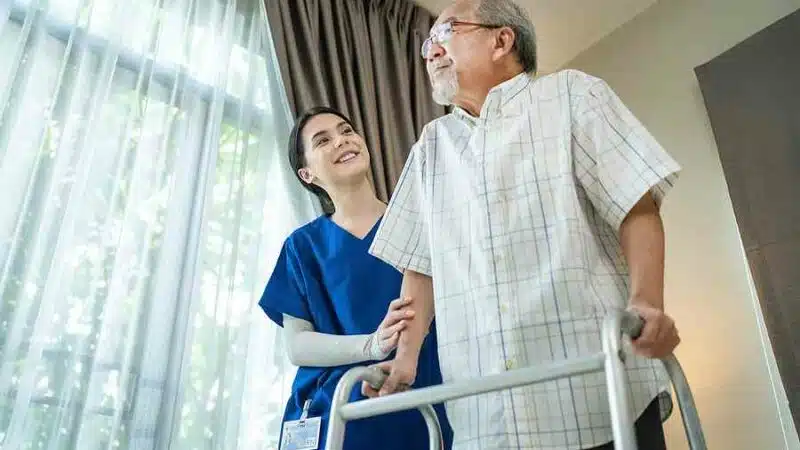Are Vegetarians At More Risk Of Hip Fractures?

Compared to regular meat-eaters, vegetarians had a 33% higher risk of hip fractures, according to a study of over 26,000 middle-aged British women.
Pescatarians – people who eat fish but no meat – are at increased risk of hip fracture, according to a study published on Thursday, in the journal BMC Medicine by researchers at the University of Leeds
Over roughly 20 years, 822 hip fractures were observed among 26,318 women, representing about 3% of the sample. The only diet group with an elevated risk of hip fractures, after adjusting for factors such as smoking and age, was vegetarians.
Only a few studies have compared hip fracture risk between vegetarians and meat-eaters, where hospital records confirmed hip fractures.
Further research into the exact causes of vegetarians’ higher hip fracture risk is needed, the scientists say.
It’s possible for vegetarian diets to be healthy or unhealthy
“Our study highlights potential concerns regarding hip fracture risk in women who follow a vegetarian diet,” said study lead author James Webster, a doctoral researcher from Leeds School of Food Science and Nutrition.
As with any diet, it is important to understand your personal circumstances and what nutrients are necessary for a balanced, healthy lifestyle. However this is not a warning to stop eating vegetarian food.
Also with with diets containing animal products, vegetarian diets can vary widely from person to person.
Despite this, vegetarian diets often have lower intakes of nutrients associated with bone and muscle health, which is concerning.
Generally, protein, calcium, and other micronutrients are more plentiful in meat and other animal products, than in plants. Protein, calcium, and other micronutrients are generally more abundant in meat and other animal products than in plants.

As a result, you may be more likely to suffer from hip fractures if you don’t consume these nutrients.
As a result, it is especially important to conduct further research to understand the factors driving vegetarians’ increased risk, whether it is dietary deficiencies or weight management, in order to help people make healthy choices.”
In order to help people make healthy choices, further research is especially important to better understand factors driving the increased risk among vegetarians, such as nutrient deficiencies or weight management.
The popularity of plant-based diets is on the rise
In 2021, YouGov reported that approximately 5-7% of UK residents are vegetarians, indicating the popularity of vegetarian diets in recent years. Previous studies have shown that vegetarian diets can reduce the risk of several chronic diseases, including diabetes, heart disease, and cancer, compared to omnivorous diets.
Climate change also calls for reducing the consumption of animal products.
For public health reasons, it is increasingly important to understand the risk of hip fractures in vegetarians.
“Hip fractures are a global health issue with high economic costs that lead to loss of independence, reduced quality of life, and increased risk of other health issues,” said study co-author Professor Janet Cade, leader of the Nutritional Epidemiology Group at Leeds.
In the past, plant-based diets have been associated with poor bone health, but research on hip fractures is lacking. In order to better understand the risks associated with plant-based diets over the long term and how to mitigate them, this study is important.”
Researchers investigated possible links between diet and hip fracture risk using data from the UK Women’s Cohort Study.
In order to investigate links between diet and chronic disease, the University of Leeds established a national cohort of middle-aged women. A four-day food diary was used to validate dietary information collected using a food frequency questionnaire.
Their ages ranged from 35 to 69 when they were recruited into the cohort study.
The effects of a low body mass index
Vegetarians had a slightly lower BMI than meat eaters on average, according to the research team. There is a link between low BMI and a higher risk of hip fractures, according to previous research.
An underweight person may have a lower BMI, which can indicate poorer bone and muscle health, and a higher risk of hip fractures. The observed higher risk among vegetarians may be explained by low BMI, but further investigation is needed.
According to co-author Dr. Darren Greenwood, a biostatistician in the School of Medicine at Leeds, “this study is just one aspect of how diet affects healthy bones and muscles with age.
Further research is needed to confirm whether similar results can be obtained in men, to examine the role of body weight, and to determine why vegetarians and meat eaters have different outcomes.





